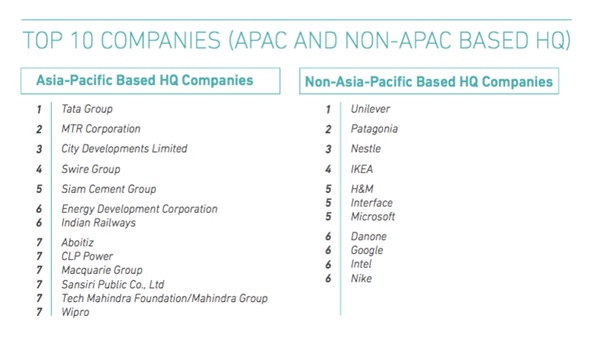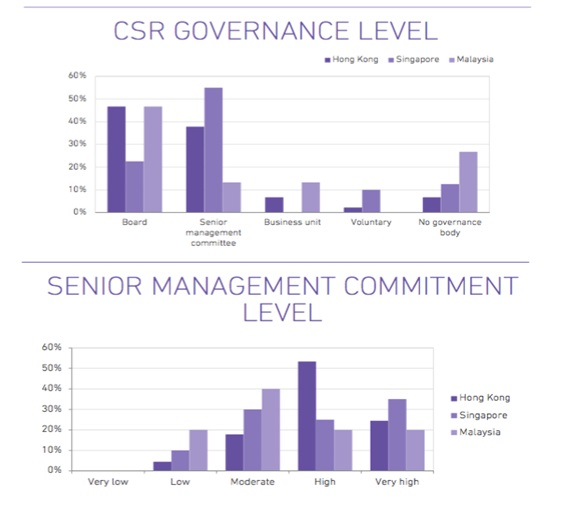Based on responses from close to 500 CSR managers, consultants and NGO professionals in Asia, the report gives an insight into those industries employing sustainability managers and their salary, responsibility, hiring practices and budgets.
For the second year running we asked those in the profession which companies they most admired.
Listed below are the top ten most admired companies with an Asia Pacific HQ and the top ten most admired companies with a non-Asia Pacific HQ.
Compared with 2015, the stand out performer of both categories was Unilever, which ranked way above any of its peers. Patagonia was again in second place on the non- Asia Pac HQ list. New on the non-Asia Pac HQ list for this year was H&M, Danone and Intel whilst Coca Cola, Marks & Spencer and PwC have fallen off the list.
Closer to home the Tata Group retained the top spot and new entries included City Developments Limited, Energy Development Corporation, Indian Railways, Aboitiz, Macquarie Group, Sansiri Public Co Ltd and Tech Mahindra.
In many ways the result of this exercise is no surprise. These companies are communicating their sustainability efforts and consistently score well in sustainability rankings. Elsewhere in the survey, the results highlighted a key problem that other companies may face to achieve that leadership status: the lack of leadership.
We can see from the table below that 85% of respondents in Hong Kong, 78% in Singapore and 60% in Malaysia reported that CSR is managed at a senior level. While 78% of respondents in Singapore reported that CSR is managed at a senior level, only 23% manage at board level in stark contrast to Hong Kong and Malaysia where 47% manage at board level. In Malaysia, the number of companies where CSR is managed at senior management level is significantly lower than Singapore and Hong Kong and nearly a third of respondent companies in Malaysia have no governance body managing CSR at all.
The companies reflected in these results are those who have employed sustainability professionals in the organisation. Ultimate responsibility and strategy in a large number of cases is not being led at the most senior levels.
We know that sustainability is recognised as an important part of many businesses, the extent to which companies are really operationalizing the concept still varies significantly. For some, sustainability is at the heart of business strategy and considered in all decisions and they sit at the top of these lists. However, for many, social and environmental issues are simply an add-on to business as usual.
In 2017 we will repeat this survey of CSR professionals in Asia. We will be asking sustainability professionals what makes a company a “leader” and yet again be on the lookout for leaders.
This article was taken from here.



